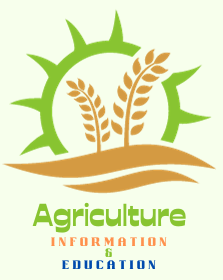Introduction:
It’s commendable to see the Government of India taking significant steps to promote natural farming and address gender gaps in agricultural extension services. The key initiatives and schemes mentioned in the provided information demonstrate a comprehensive approach to empower women in agriculture. Here’s a summary of the main points:
Bharatiya Prakritik Krishi Paddhati (BPKP):
- The government is promoting natural farming under BPKP since 2019-20.
- BPKP is being up scaled as the “National Mission on Natural Farming” (NMNF) in Mission Mode.
- Implementation involves Community Based Organizations, particularly women Self Help Groups (SHGs) and their federations.
Agriculture Technology Management Agency (ATMA):
- ATMA, a centrally sponsored scheme, focuses on extension services and reforms.
- Adequate provisions are made for women in farming.
- Women’s food security groups, including Farm Women’s Food Security Groups (FSGs), are promoted.
- FSGs serve as “Model Food Security Hubs” by establishing various agricultural activities.
- 30% of beneficiaries and resources are allocated to women farmers and extension functionaries.
- Women have significant representation in governing bodies at various levels.
Agri. Clinics and Agri. Business Centers (AC&ABC):
- Under this scheme, women beneficiaries receive a higher subsidy (44%) compared to others (36%).
National Institute of Agricultural Extension Management (MANAGE):
- MANAGE is the nodal organization and knowledge repository for BPKP.
- One-day awareness programs on natural farming have been conducted for Gram Pradhans, with a substantial number of women participants.
- A web page and knowledge repository on natural farming have been created for stakeholders, including women farmers.
- Study material in 22 regional languages for Gram Pradhans has been shared during awareness programs.
Role of Gender Coordinator under ATMA:
- Ensuring the flow of benefits to women farmers under all schemes.
- Collection of gender-disaggregated data and conducting studies in critical areas.
- Promotion of Farm Women’s Food Security Groups and addressing their needs.
- Documentation of best practices and success stories related to women in agriculture.
Innovative Activities and Subsidies:
- Women serve as farmer friends in villages to support innovative activities under ATMA.
- Under the Central Sector Scheme of AC&ABC, women beneficiaries receive a higher subsidy.
Conclusion:
The overall approach reflects a commitment to inclusivity, empowerment of women in agriculture, and sustainable farming practices through natural farming. The emphasis on training, awareness programs, and gender-inclusive policies is crucial for the success of these initiatives.


Thank you very much for posting this nice articles .
Thank You so much